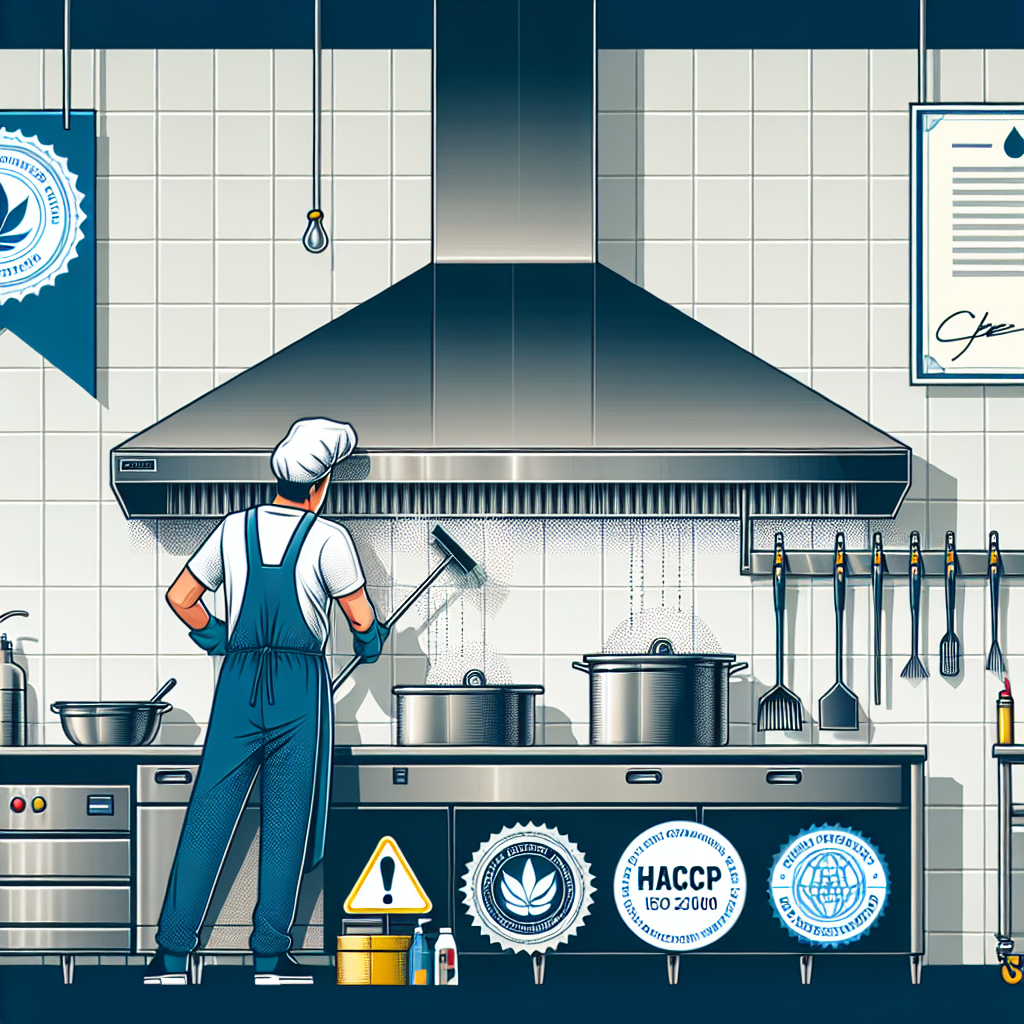The Importance of Hood Cleaning in Achieving Food Safety Certifications
In the bustling world of food service, ensuring kitchen cleanliness is crucial not only for the health of customers but also for meeting regulatory standards. One often overlooked yet essential component of this cleanliness is hood cleaning. From grease buildup to airborne contaminants, the hoods in commercial kitchens are subjected to a variety of pollutants that could hinder a restaurant’s food safety efforts. Today, we’re diving into how meticulous restaurant hood cleaning contributes to securing food safety certifications, such as the Hazard Analysis Critical Control Point (HACCP) and ISO 22000.
Understanding the Role of Hood Cleaning
Hood cleaning is a vital operation within the dynamic environment of a commercial kitchen. These hoods are integral to maintaining air quality and preventing potential fire hazards by removing grease accumulation and ensuring proper ventilation. With the help of exhaust hood cleaning professionals, such as those at Nashville Hood Cleaning Pros, restaurant owners can maintain a kitchen environment that upholds health and safety standards.
Food Safety Implications
One of the key reasons hood cleaning is indispensable is its role in fulfilling regulatory requirements that affect overall food safety and quality. When a kitchen’s exhaust system is properly maintained, it effectively removes contaminants that could otherwise circulate back into the kitchen, potentially leading to health code violations or foodborne illnesses.
The Relationship Between Hood Cleaning and Certifications
Building a strong food safety management system is critical for any establishment striving for certifications like HACCP or ISO 22000. These certifications require rigorous standards for cleanliness and safety, encompassing everything from ingredient sourcing to waste management and, importantly, equipment maintenance.
HACCP and Its Standards
The HACCP certification is predicated on controlling points in the food production process where potential hazards might arise. Grease, chemical residues, and airborne pathogens associated with poorly maintained hoods are significant hazards that can be effectively mitigated through regular hood cleaning. Therefore, aligning commercial kitchen hood cleaning practices with HACCP’s stringent standards is not just beneficial but necessary.
ISO 22000 and Comprehensive Safety
The ISO 22000 standard for food safety management systems takes a broader approach, incorporating management system principles with food safety requirements. Among its criteria are maintenance practices and environmental hygiene, all of which are supported by routine hood cleaning. Therefore, integrating a comprehensive cleaning protocol can not only enhance operational safety but also pave the way toward achieving this global certification.
Best Practices for Successfully Integrating Hood Cleaning
To comply with these certifications, restaurant owners should prioritize regular inspections and thorough cleaning sessions by specialized Nashville Hood Cleaning Pros. Here are some best practices to consider:
- Scheduled Cleaning: Establish a cleaning schedule that aligns with the kitchen’s operational hours. This minimizes downtime and ensures that the cleaning process does not disrupt business operations.
- Certified Professionals: Hire only certified cleaning services that utilize environmentally friendly products and techniques. Professional services ensure compliance with local and national safety standards and provide documentation that may be required during certification assessments.
- Documentation and Verification: Keep meticulous records of cleaning schedules, inspections, and any maintenance performed. This documentation will serve as evidence during audits for food safety certifications.
How Hood Cleaning Enhances Kitchen Efficiency
Beyond safety certifications, well-maintained hoods can significantly improve kitchen efficiency. Clean hoods enable better air circulation, which in turn maintains a cooler kitchen environment. This allows chefs to work more effectively without the discomfort of heat stress. Additionally, a cleaner system reduces the risk of mechanical faults, ensuring that all kitchen equipment is operating efficiently.
Economic Advantages
Regular hood cleaning can also present economic advantages. By preventing potential fire hazards and compliance penalties, businesses can avoid costly repairs and legal issues. Moreover, the longevity of kitchen equipment is enhanced, offering a better return on investment.
Conclusion: Elevate Your Kitchen’s Safety Standards
In conclusion, integrating hood cleaning into routine kitchen operations is a critical step toward achieving food safety certifications. Programs like HACCP and ISO 22000 emphasize the importance of maintaining a sanitary environment, free of contaminant risks. By partnering with expert technicians from trusted services such as Nashville Hood Cleaning Pros, restaurants can ensure that their kitchen hoods are not only clean and safe but also certifiably compliant. Whether your establishment is old or new, a proactive approach to cleanliness can set the standard for excellence in food safety and overall customer satisfaction.


